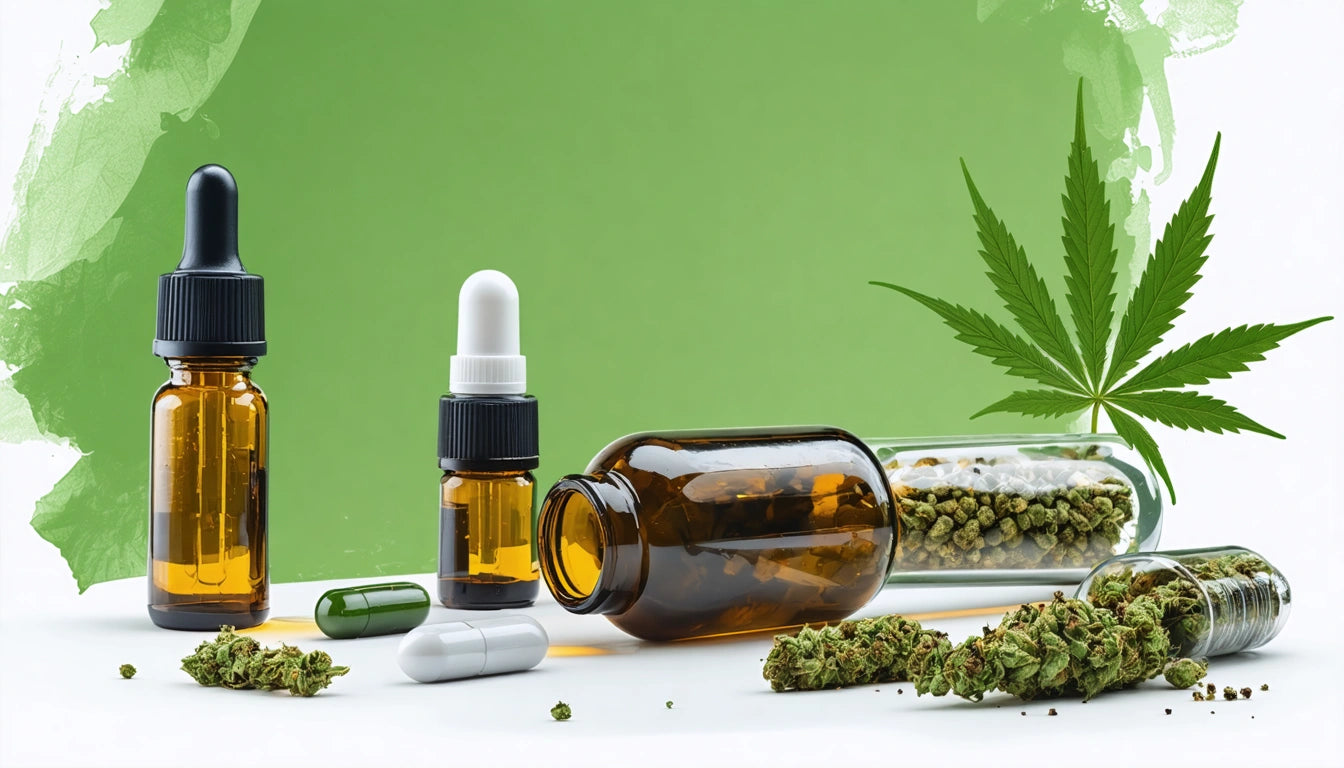Is Marijuana Really a Gateway Drug? Exploring the Debate
The question of why marijuana is considered a gateway drug has sparked decades of debate among researchers, policymakers, and the public. This controversial theory suggests that cannabis use leads to experimentation with harder, more dangerous substances. But does the evidence support this claim, or is it an oversimplification of complex drug use patterns?
Origin of the Gateway Drug Theory
The gateway drug theory emerged in the 1970s during the early years of the War on Drugs. It posited that softer substances like marijuana create a pathway to harder drug use. This concept became a cornerstone of anti-drug education programs and policy decisions for decades.
The theory gained traction partly because many people who use harder drugs report having used marijuana first. However, correlation does not necessarily indicate causation, a distinction that has fueled ongoing scientific inquiry into marijuana's composition and effects.
Evidence Supporting the Gateway Theory
Several factors contribute to why weed is considered a gateway drug:
- Statistical correlation between early cannabis use and later hard drug use
- Animal studies suggesting that THC exposure may prime the brain's reward system
- Research indicating that early marijuana use correlates with increased risk-taking behavior
- Shared methods of consumption that may normalize drug-taking behavior
Some studies show that adolescents who use marijuana are more likely to use other substances later in life. This pattern has reinforced the gateway hypothesis in public health messaging and safety protocols, including the development of child-resistant packaging solutions for cannabis products to prevent accidental exposure.
Challenging the Gateway Hypothesis
Critics of the gateway theory point to several counterarguments:
First, the vast majority of marijuana users never progress to harder drugs. If cannabis truly functioned as a gateway, we would expect to see much higher rates of progression.
Second, in countries with more liberal cannabis policies, there hasn't been a corresponding increase in hard drug use. This suggests that legal and cultural factors may be more influential than pharmacological ones.
Third, research into how marijuana affects the body and mind has not demonstrated a clear biological mechanism that would predispose cannabis users to seek other substances.
Social and Environmental Factors
Many researchers now believe that social and environmental factors better explain why some marijuana users progress to other drugs:
- Exposure to drug-using peers and social networks
- Access to illicit drug markets when purchasing cannabis
- Underlying risk factors like trauma, mental health issues, or genetic predisposition
- Socioeconomic factors and lack of opportunity
These contextual factors may be more predictive of progression to harder drugs than marijuana use itself. Understanding why people use cannabis in the first place provides important insights into potential risk patterns.
Medical Cannabis Perspective
The medical cannabis community offers another perspective on why marijuana is considered a gateway drug. Rather than serving as a gateway to harder drugs, some research suggests cannabis may function as an "exit drug," helping people reduce dependence on opioids, alcohol, and other substances.
Studies examining medical cannabis uses and benefits have found decreased opioid prescriptions in states with medical marijuana programs. This challenges the traditional gateway narrative by suggesting cannabis may actually help reduce use of more dangerous substances in some contexts.
Alternative Gateway Theories
Some researchers propose alternative gateway theories that better account for observed patterns:
The common liability theory suggests that the same risk factors (genetic, psychological, social) predispose individuals to try multiple substances. Under this model, marijuana isn't causing progression to other drugs; rather, underlying vulnerabilities drive both behaviors.
The gateway policy theory argues that prohibition itself creates the gateway effect by forcing cannabis users to interact with illegal markets where other drugs are available. This perspective has influenced debates about marijuana legalization.
Policy Implications and Research Directions
The question of why marijuana is a gateway drug has significant implications for policy and public health. If the relationship is primarily correlational rather than causal, then prevention efforts might be better directed at underlying risk factors rather than cannabis itself.
Future research needs to better distinguish between causation and correlation, account for cultural factors affecting cannabis use, and examine how changing legal status affects progression patterns.
As our understanding of cannabis continues to evolve, so too should our approaches to education, prevention, and harm reduction. The simplistic gateway narrative may ultimately give way to more nuanced models that better capture the complex interplay of biological, psychological, and social factors that influence substance use patterns.











Leave a comment
All comments are moderated before being published.
This site is protected by hCaptcha and the hCaptcha Privacy Policy and Terms of Service apply.